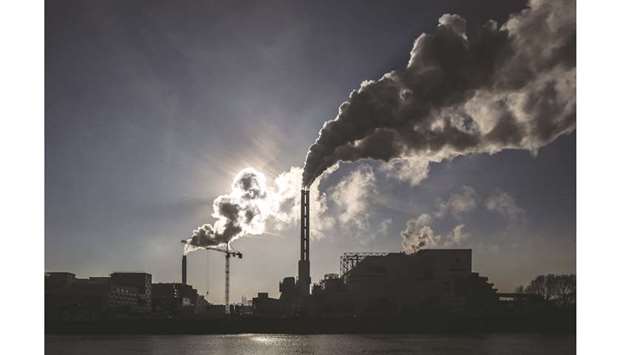By Emma Vickers New York
The discussion around changing weather is changing. Anodyne references to “climate change” and “global warming” are being scorned by those who think it’s time for more drastic talk, and action, on the environment. They prefer more urgent terminology in hopes that it translates to more urgent action.
1. What new terms are part of the discussion?
Young demonstrators around the world are demanding that their governments declare climate “emergencies,” going so far as to skip school on Fridays to hold so-called climate strikes. The UK’s Guardian newspaper, which champions environmental issues, said in May that it was changing its house style to prefer “climate emergency,” “climate crisis” or “climate breakdown” over “climate change” (as well as “global heating” over “global warming”). Editor-in-chief Katharine Viner said “climate change” sounds “rather passive and gentle when what scientists are talking about is a catastrophe for humanity.”
2. Is it showing results?
Maybe. In a poll by the Washington Post and the Kaiser Family Foundation, 38% of US adults termed climate change “a crisis,” while an equal number called it “a major problem but not a crisis.” The Democratic leadership of the US House of Representatives this year established a Select Committee on the Climate Crisis, which aims, by March 2020, to publish a blueprint for keeping the gain in the Earth’s temperature to less than 1.5 degrees Celsius (2.7 degrees Fahrenheit). When Democrats last held a majority in the House, in 2007, they created a similar committee but called it the Select Committee for Energy Independence and Global Warming. It was abolished when Republicans regained control of the House in 2011.
3. Isn’t this just semantics?
Literally, yes. And it could be argued that much more tangible steps are being taken: With a changing atmosphere already upon us, use of electric cars is growing, renewable energy is already cheaper than coal in many places (and is becoming cheaper), many investors are uprooting carbon from portfolios and more and more people are eating less meat. But activists argue that stronger words can focus attention on the planet in a new way, and that rallying cries can prompt corresponding action.
4. What sort of action?
By mid-2019, local and national governments representing 206mn people had declared “climate emergencies,” according to the Climate Emergency Declaration Petition, a campaign group. It says in most cases, that means the government commits to develop an action plan within six months. The student climate strikers who advocate use of “emergency” want governments to commit to switching to 100% renewable energy as soon as possible, preferably by 2030.



